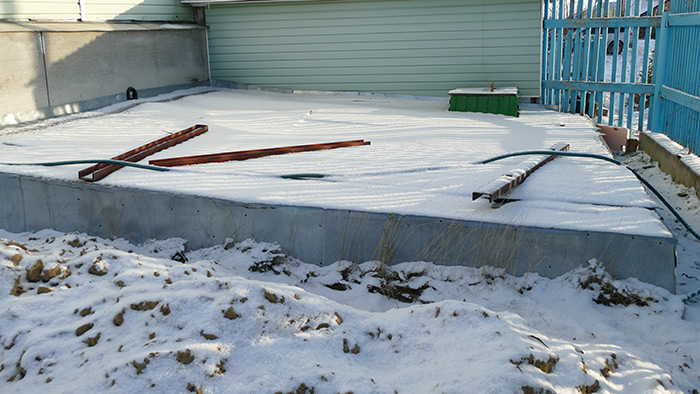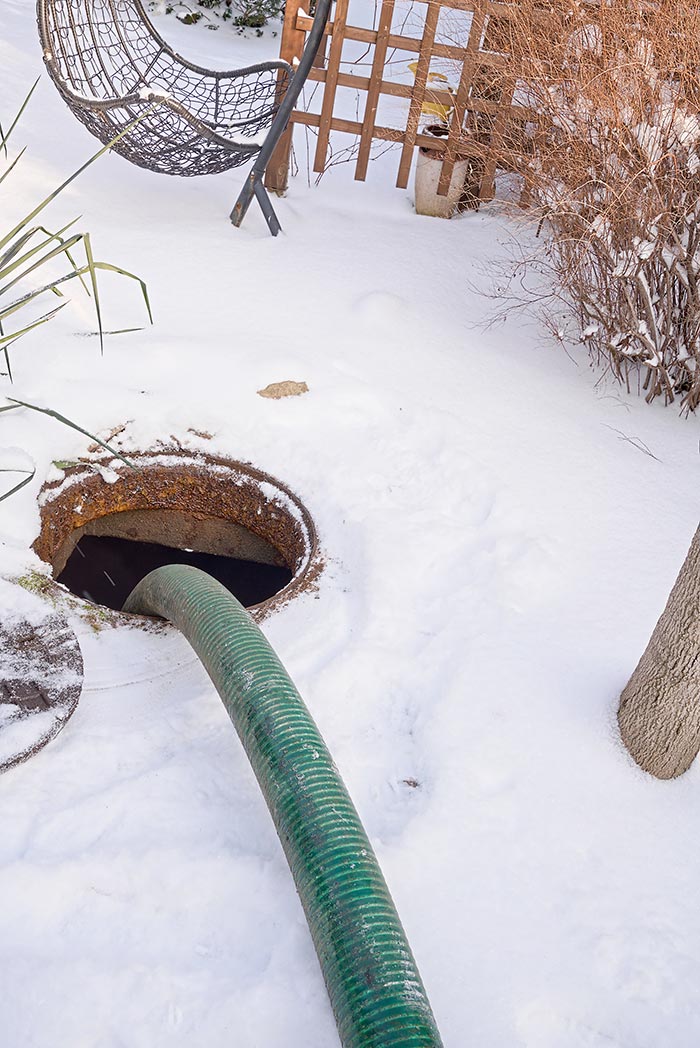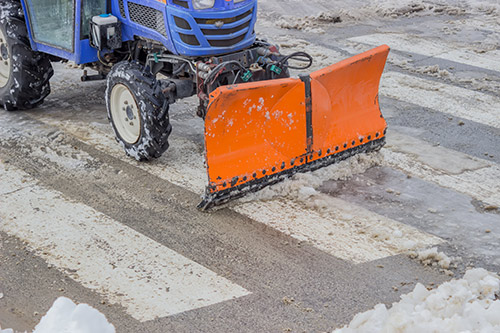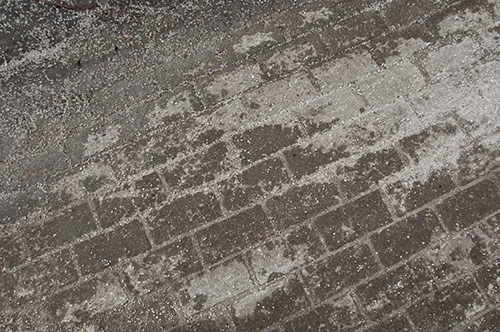
If you have a septic system, it’s important to know what you should and shouldn’t do around that area of the yard and indoors. There is a possibility of a septic system freezing, especially in cold areas with little snowfall. Follow these tips to reduce the chance of frustrating and costly damage to your septic system this winter.
Repair leaky fixtures. Dripping sinks, showers, and toilets can result in ice forming in the pipeline between your house and septic tank.
Use hot water. Having warm water flow into the tank regularly will help prevent ice buildup. Pamper yourself with a long bath or shower with the knowledge that you’re helping the septic system!
Keep up the lawn. A healthy, thick lawn of grass or other foliage will help insulate the soil that contains the septic system.
Spread mulch. Place an 8-12 inch layer of straw mulch on top of and around the pipes, tanks, and drain field of the septic system. This will further insulate the ground and help prevent the soil from freezing.
Secure the system. Make sure the tank and pipes don’t have any cracks in them and any caps are still securely in place. Any openings can let cold air into the system.
Keep cars away. Never park any vehicles on top of your drain field. Cars will compact the soil above the septic system, which makes it easier to transfer cold below. They will also prevent insulating snow from covering the area.
If you’ve had troubles with your septic system freezing or other issues in the past, you should get the system checked out by a professional. They can help with problems such as:
Sagging pipes. Pipes that have settled into the ground unevenly will cause water to pool and possibly freeze.
Insulation installation. A sewer professional can install more extensive insulation around the tank and pipes.
Draining the system. A septic tank and pipes periodically need to be pumped and cleaned out. You should leave this task to a professional.
Waterlogged drain field. Older septic systems can cause the drain field to become flooded. In this case, consult with a professional to see what can be done in your particular situation.
Keep your septic system in good shape by getting it checked regularly. In the meantime, keep these tips in mind to help prevent freezing and damage.
Source: completehomewarranty.com




